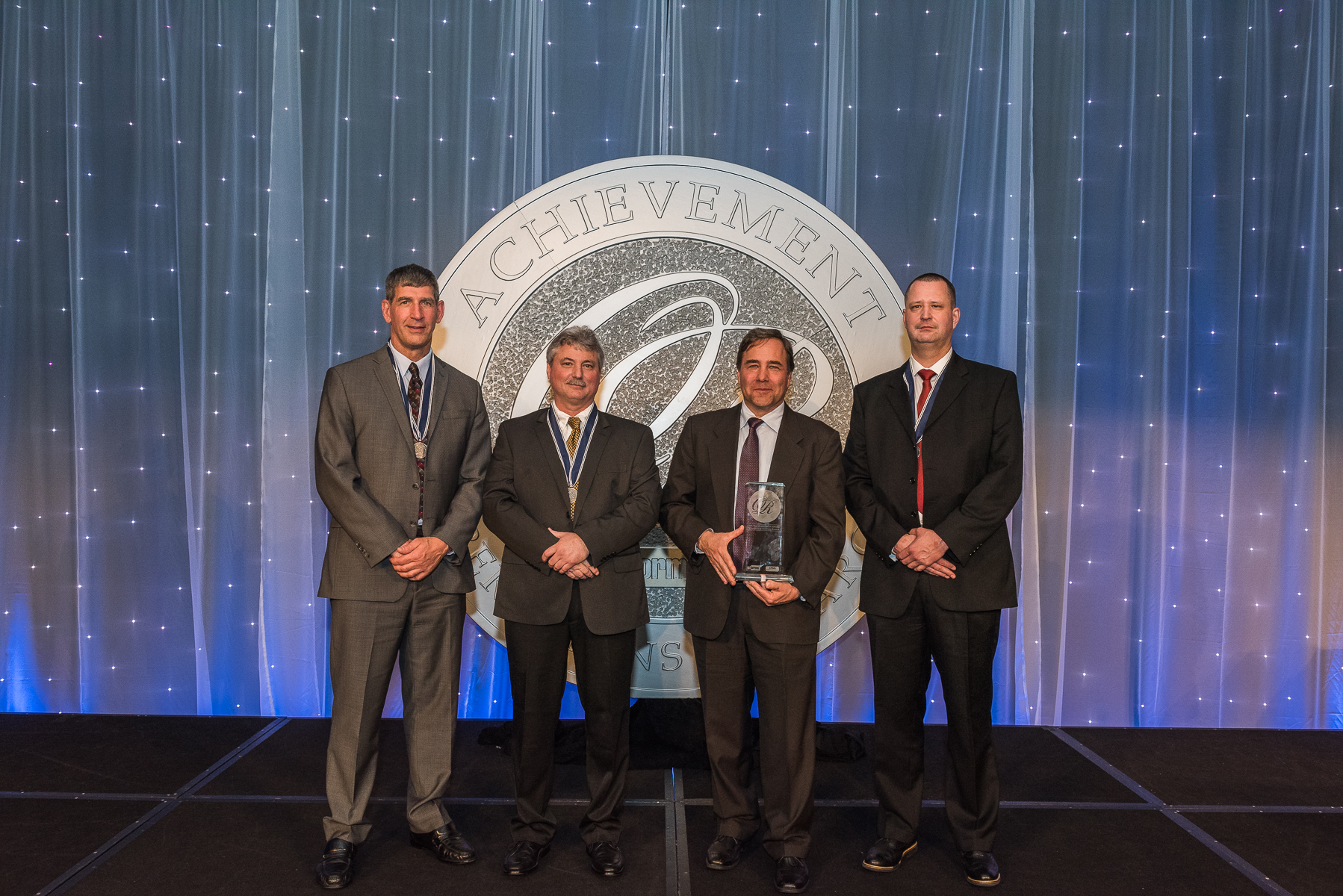
Advanced Analytics, Collaborating for Greater Growth
Joseph Byrum’s work in plant breeding has been called “transformative” by his peers. For farmers his
efforts translate into two sought-after words: higher yields.
Byrum (’99 PhD plant breeding), Syngenta’s global head of soybean research and development, has worked in plant breeding for two of the world’s leading companies for nearly 20 years. In that time he’s patented more than 50 traits, processes and discoveries that have generated $1 billion in revenue.
He has experience across the entire value chain—manufacturing, corporate affairs, procurement, regulatory, business development and account and alliance management.
Bill Beavis, agronomy professor and G.F. Sprague Chair for Population Genetics at Iowa State University, collaborates with Byrum.
“Joe’s team is fundamentally changing how plant breeding systems are improved by inviting systems engineers to use the same tools used in designing manufacturing, financial, management or economic systems,” Beavis says. “As a result, they’re realizing improved genetic gain with fewer resources.”
Byrum’s work as the chief architect of Syngenta’s “Good Growth through Advanced Analytics” program won the 2015 INFORMS Franz Edelman Award for Achievement in Operations Research and the Management Sciences. He also is a fellow at the Aspen Institute, an educational and policy studies organization based in Washington, D.C. that provides a nonpartisan venue for dealing with critical issues.
The INFORMS Edelman competition acknowledges significant contributions of analytics and operations research in the profit and non-profit sectors. The award, now in its 44th year, is considered the
world’s most prestigious recognition for excellence in applying advanced analytics to benefit business and
humanitarian outcomes.
Byrum had operational, administrative and financial oversight of the Good Growth through Advanced Analytics
program. The multi-phased, multi-year project resulted in a set of tools using big data techniques, advanced mathematics and new technologies to develop soybeans with higher yields.
Byrum says the new tools will improve soybean breeder decisions through more accurate estimates
of variety performance, increased selection intensity, greater useful genetic variation and reduced generation time without using more land, water or other inputs.
“There’s tremendous opportunity at the interface of engineering and agriculture. Joe and his colleagues are leading the way for better integration of advanced analytics to make better decisions,” says Beavis.
The new mathematical tools developed by Byrum and colleagues resulted in cost avoidance for soybean research and development of more than $287 million from 2012-2015.
“Before we began using these tools, we realized that an average annual increase in yield across our soybean varieties was about 0.8 bushels per acre,” says Byrum. “That average is now closer to 2.5 bushels
per acre.”
The new approach was realized through a cooperative network of experts within and outside industry through open innovation. Syngenta has since initiated a multi-year effort to customize and launch similar tools across all major crop areas.
“We strive to be at the forefront of innovation addressing the impending global food security problem,” says Byrum. “We are proud of this recognition and how Syngenta is helping farmers grow more from less through innovation in plant breeding techniques. There is no other single point in the food chain one can have such an impact on the quality of life in a society.”
Byrum worked with fellow Iowa Staters Gregory Doonan (’97 biology, ‘09 MS plant breeding), Ronald Mowers (’81 PhD agronomy, statistics) and current graduate student Tracy Doubler on the 10-person Good Growth through Advanced Analytics team. Other members were Dave Culhane, Craig Davis, David Foster, Bruce Luzzi,
Stephen Mack and Chris Zinselmeier.
He says his experience and education at Iowa State helped him capitalize on professional opportunities, and believes the quality of an Iowa State education in plant breeding and genetics is “unparalleled.”
“At Iowa State we train plant breeders to be integrators of various disciplines—plant genetics, pathology, statistics, engineering—they pull what they need from each of these. Joe is a perfect example,” says Patrick Schnable, C.F. Curtiss Distinguished Professor, Iowa Corn Endowed Chair in Genetics and Baker Scholar of Agricultural Entrepreneurship. Schnable directs the Plant Sciences Institute and Center for Plant Genomics at Iowa State University.
“We consider data an asset, in plant breeding and broadly, that affects all disciplines. Thanks to recent high impact faculty hires here at Iowa State, future graduates will be well-positioned to do what Joe has done for plant breeding in their own disciplines,” Schnable says.
In recent years, President Steven Leath has directed the hiring of several faculty in the strategically important area of big data including experts in data mining; information management; bio- and materials-informatics; sensor technologies; agricultural and environmental systems; and multi-scale modeling, among others.
“What I got from Iowa State University is a combination of intellectual tools and practice in collaboration, which
helped me sort through the multitude of key priorities and figure out how to solve complex problems,” says
Byrum. “The balanced curriculum, grounded in quantitative training, provided the background to succeed.
In addition to the analytical, multidisciplinary approach, what’s equally compelling is the school’s international presence and leadership focus.”
These are all traits Byrum says he draws on often to lead, inspire and direct change.
“The opportunity and need for entrepreneurship in plant genetics is extensive. Continuing to innovate and
focus on the most exciting opportunities both serves the needs for society and it is intellectually challenging,” Byrum says.
What’s the next innovation he’ll be focusing his efforts on?
“I’m very interested in exploring the impact and application of quantum computing on agriculture,” Byrum says.



